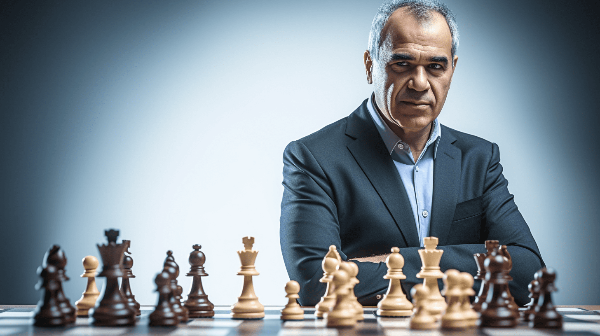
Russia Accuses Chess Legend Kasparov of Terrorism: Can a World Chess Champion Truly Be a Terrorist?
01.05.2024 04:31 | NewsIn the latest twist of Russian politics against its critics, Garry Kasparov, one of the greatest chess grandmasters in history, has been charged with terrorist activities. But how can a chess master become the target of such serious allegations?
Terrorism, defined as the use of violence or the threat of violence to achieve political, religious, or ideological objectives, seems an unlikely accusation for Kasparov. Nonetheless, Russia has added Kasparov to its list of "terrorists and extremists" and subsequently issued an arrest warrant for alleged involvement in creating and funding a terrorist organization.
%20(1).png)
The city court in Syktyvkar, the capital of Russia's northwestern Komi region, has taken the case to the next level by charging Kasparov with "creating a terrorist society, leading it, financing terrorist activities, and publicly justifying these acts." Kasparov, along with other Russian opposition politicians, has been charged in absentia, which prevents his physical detention.
Interestingly, Kasparov responded to the arrest warrant with a hint of irony, describing it as "the best arrest I've ever experienced," referring to an incident in 2012 when he was allegedly subjected to police brutality in front of a Moscow court. His comment points to the absurdity of a situation where intellectual criticism of the regime is considered terrorist activity.
.jpg)
In a further development, Kasparov appealed to Interpol to evaluate the risks of his being detained while traveling. Kasparov, a co-founder of the Free Russia Forum and a longtime critic of the Kremlin, may feel threatened but emphasizes the importance of international law and its observance.
Kasparov's case raises fundamental questions about the nature and definition of terrorism. Is it possible that intellectual and political opposition can be legitimately labeled as terrorism, or is it merely a misuse of the law to suppress dissent? The accusations against Kasparov, despite his international recognition and history as a chess master, provide insight into how authoritarian regimes can manipulate charges to maintain power.

Given his stature and past actions, it's hard to see Kasparov as a traditional terrorist. This case may serve as a warning to other critics of authoritarian regimes that public dissent can be construed as a crime with international implications. Kasparov's situation is not only a symbolic battle for free speech but also a reminder that the right to dissent remains fragile and threatened.
PK
